THE LEGALITY OF QUEER RIGHTS IN KENYA: WE NEED TO DO BETTER!
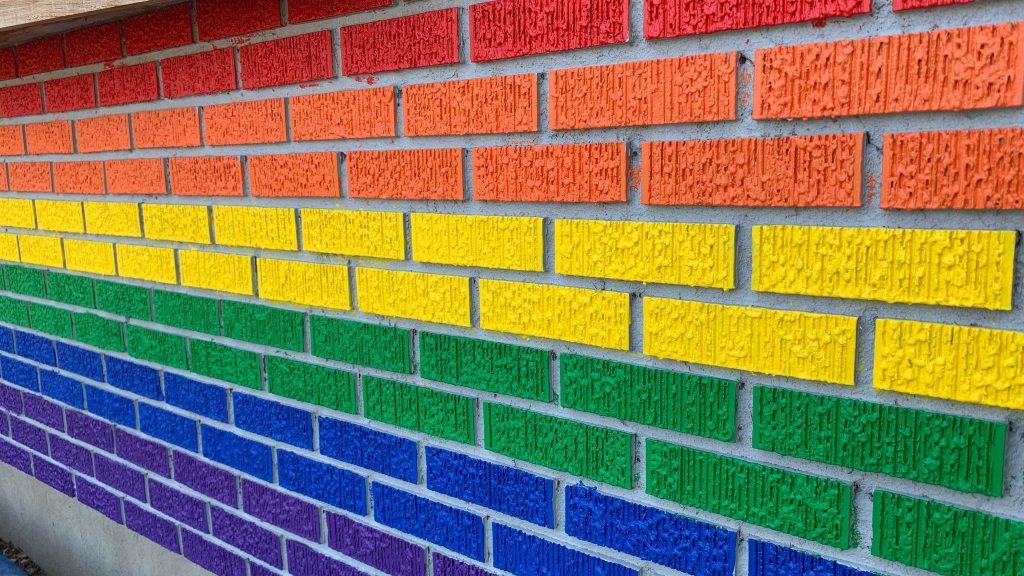
Article By Nas
Kenya. A sovereign country. A former British colony. A member of the UN and a signatory of most of the world governing body’s treaties if not all. In May 2019, a petition seeking to decriminalize gay sex was dismissed by the Kenyan high court. Representing her views for the panel of 5 judges, Justice Roselyn Aburili announced the judgment that the members of the bench came to a unanimous decision to dismiss the case on grounds that the petitioners did not express enough evidence the minority group was being discriminated against on the petition to #Repeal162. She went on to say that the constitution of Kenya 2010, outlaws same-sex marriages, and allowing gay sex would “open the way for same-sex unions”-which is indeed not part of the petition.
The Kenyan law does not recognize LGBTQ. In fact, sexual practices between males are termed as ‘GROSS INDECENCY’, and it is a felony under section 165 of the penal code, punishable by up to 5 years imprisonment.
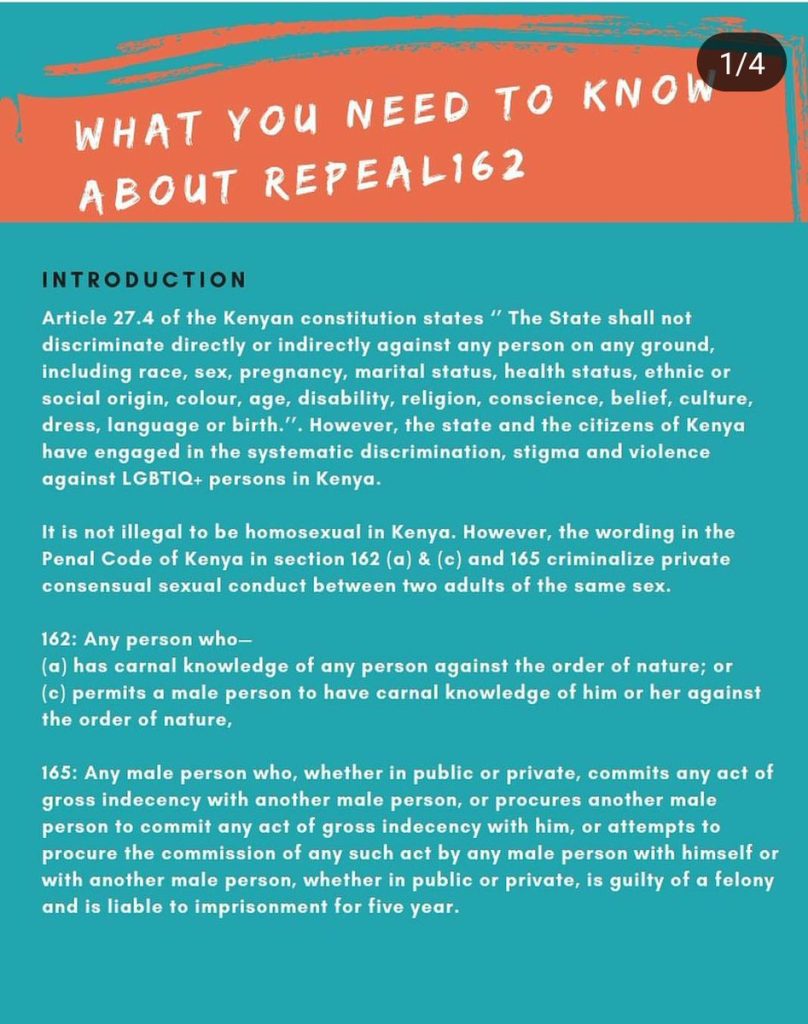
The Section clarifies specifically that gross indecency acts are sexual acts between males whilst lesbianism or any other group in the spectrum is not mentioned. However, in sections 162 (a) and (c), gay is categorized as an unnatural offense. With a closer look at the law, you find that lesbianism is implicitly included. In this section of the constitution, the unnatural offense is any sexual activity that does not involve the insertion of a penis in a vagina. Anyone found guilty under this article of the constitution, is liable to be locked for up to 14 years.
There are 195 countries recognized by the UN, including the Vatican and Palestine that have the roles of permanent observers. Both of them do not vote in UN General Assembly. Nearly 15% of those countries and territories have legalized same-sex unions. Love equality has been acknowledged in 29 countries around the world. In Africa, only one country has done this-South Africa with Bostwana being among the five countries to recently decriminalize same-sex. The general claim that homosexuality defies African folklore, is a narrative used by many political and religious leaders, to perpetuate the status quo. As a member of the UN and a staunch participant in the UNGA, Kenya is obligated to follow to the latter every resolution passed by the assembly. Article 2 paragraph 5 of the Kenyan constitution states that general rules of international law form part of the Kenyan law. Which begs a question, why does the East African economic stronghold nation puts gay men and women in so much agony? In the same article, paragraph 4 states that any law including customary law that is inconsistence with the law of the nation is invalid. And that is the loophole used for all the conservativeness.
The first resolution by the UNHRC-A/HRC/RES/17/19 was adopted in June 2011, nearly a year after Kenya attempted to ditch its colonial master’s constitution. It sought the documentation of discriminatory laws and practices and acts of violence against individuals based on their sexual orientation and gender identity in the world, and how international human rights law can be used to end those atrocities. In that meeting, Africa was represented by 10 countries and nine of them voted against it. Only Mauritius voted for it. A/HRC/RES/27/32 was the second resolution by the United Nations Human Right Council, adopted in 2014. It emphasized that regions of the world must treat Human Rights in a fair and equal manner, on the same underpinning and with the same emphasis. The commission nonetheless, appreciating the significance of national and regional particularities and various historical, cultural, and religious backgrounds, tasked the duty of promoting and protecting all human rights and fundamental freedoms to states, regardless of their political, economic, and cultural systems. Even though the resolution passed, Kenya voted against it. In June 2016 resolution A/HRC/RES/32/2 was passed. UNHCR recognized and admitted that countries like Kenya and other regions of the world had been complacent in acts of violence and discrimination against gay individuals. It called for nations to comply and support an independent expert appointed and funded by the UNHCR to assess the implementation of existing international human rights mechanisms with regard to ways to overcome violence and discrimination against persons on the basis of their sexual orientation or gender identity, raise awareness of targeted violence and discrimination against LGBTQ while identifying and addressing the root causes of violence and discrimination. However, during a review of these NGLHRC represented a statement to the UN Committee that addressed the issue of torture against the LGBTQ+ community in Kenya citing six points and recommendations one of them being sealing loopholes in policies.
Now, you must understand that if the UN highlights an issue and does not fund or fails to procure donors to help mitigate their agenda, countries, particularly in Africa will be hesitant to take up the responsibility. If there are funds involved, then the African heads of state push their representatives in the UN to oblige. Funny how funds work wonders and also explains how our leaders would do anything for a dime. The LGBTQ community is going through so much that disregarding their suffering should be a point of shame. How are we living happily and at peace with each other comes in a condition? I will never understand how being heterosexual is a norm and being homosexual is barbaric.
According to a 2011 report by Kenya Human Right Commission, commercial sex workers who engage with male counterparts get harassed and blackmailed by the security personnel and on separate occasions forced to engage in sexual acts for their freedom. The sheer double standard in the law enforcement bodies in this nation is astounding. Some of the officers who have doubts about their sexuality or have clearly known that they are not part of the heterosexual community would rather remain silent to protect the badge in retrospect they use the same opportunity to abuse those who have come to terms with who they are. Almost 95% of the LGBTQ in Kenya is still in the closet. This is across all walks of life. Coming out in Kenya is not for the faint-hearted. The stigma is of the worst kind and form. It is so bad that some members of the LGBTQ fear for their families more than they would for themselves. Those who bravely defy all odds face all manner of hate. From being shunned to having to literally move across the country for safety. You would think that reporting hate attacks to the police would grant you relief but it just makes everything all worse. The corrupt force will mark you and you become a subject for mockery.
In all essence, the human being evolution is at a point where people want to choose what is dynamic and what is not. Take technology, for instance, the world is being run literally by a stroke of a key on a computer and a command on the internet. The versions of software change all the time and no one wants to be left behind. When it comes to human habit change, discrimination is palpable. Dehumanizing is evident. In some cases, a change in human traits has proved fatal.
Kenya is designed in a way that whatever the colonial masters introduced, is the basic point of everything else. From driving on a certain side of the road to the way the judicial system is and eventually the governance. The only thing changes are the implementors of governance.
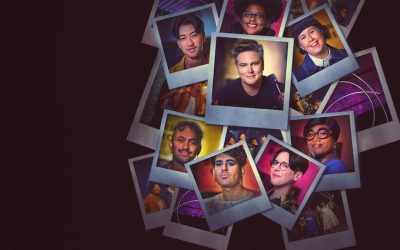


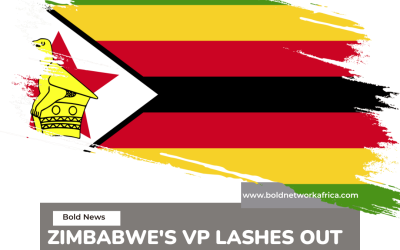
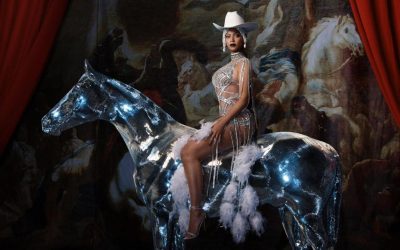
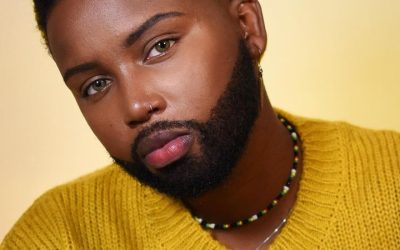
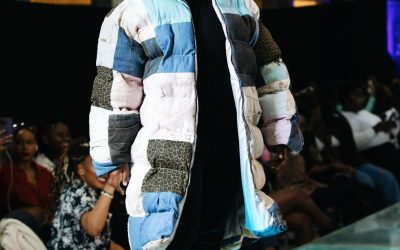
Recent Comments